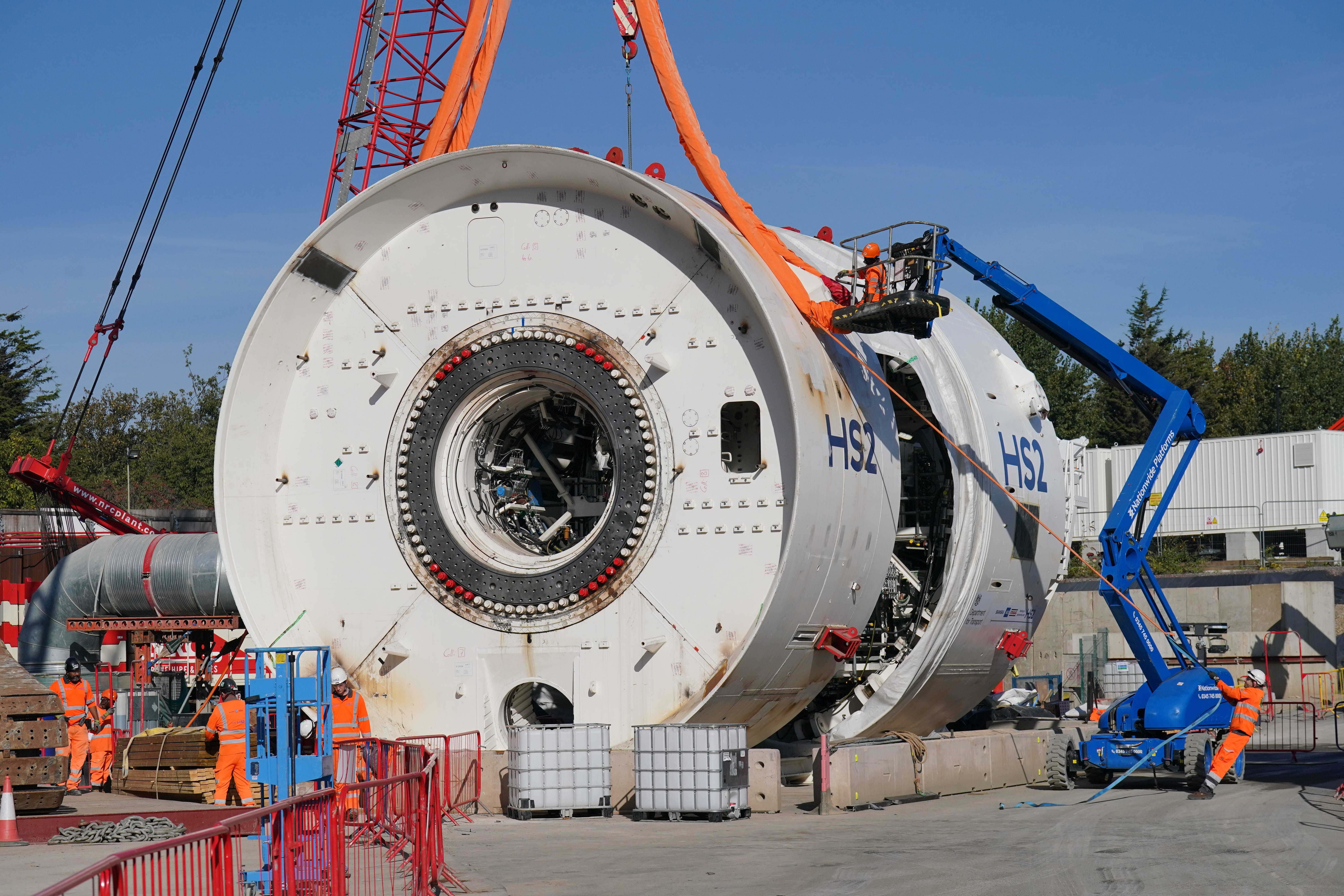Development of HS2 trains continues despite doubts over order
Alstom told MPs ‘cost is being incurred right now’.

Taxpayers’ money is being spent developing HS2 trains despite speculation the order may be changed, MPs were told.
Nick Crossfield, managing director for manufacturer Alstom in the UK and Ireland, said “the meter is running” as he explained work is continuing at its factory in Derby to provide 54 HS2 trains based on £2 billion contracts issued two years ago.
He told the Commons’ Transport Select Committee “there is a conversation to come” about how the Government’s decision to axe HS2 north of Birmingham will affect what trains are required.
Cost is being incurred right now
A joint venture between Alstom and Hitachi Rail was awarded contracts to design, build and maintain non-tilting trains by Government-owned company HS2 Ltd.
There are suggestions the curtailment of the high-speed railway means trains able to tilt so they can travel faster once they move onto the West Coast Main Line after reaching the West Midlands should be ordered.
Mr Crossfield said “financial mechanisms” in the train-building contracts “protect for abortive costs that are redundant and dead as a result of a material change”.
He went on: “I’ve got a team of people, I’ve got an organisation mobilised.
“I’ve got 800 engineers designing the train and designing it to a specification, and I’ve also got an industrialisation team mobilising the factory for a production process that is due to start in 2026.
“That work is happening now. Cost is being incurred right now.
“It’s a bit like a taxi meter. The meter is running so we need clarity as soon as possible.”
A gap in its order book means Alstom is consulting on potential redundancies believed to number around 550 at its Derby site, while 780 contractors are also at risk.
Mr Crossfield said the sector faces a “hugely challenging” market in the next two to three years due to the lack of a steady supply of contracts for building new trains and modernising existing ones.
He also described his “grave concern” that the UK is “way off the pace” in terms of decarbonising its trains compared with other countries.
Mr Crossfield said Alstom is an international group and it would be “very easy” for the company to decide to import trains into the UK if it believes domestic manufacturing is “too difficult”.
He explained that Derby could be converted from a site employing 3,000 people and supporting 15,000 people in the supply chain to a facility that employs only 300 people responsible for just the final assembly of structures imported from abroad.
“That’s a very easy transition to make,” he told the committee.
“It’s not one that I want to make and it’s not one that I believe the company should make, but that is why we are actively trying to persuade the stakeholders in this country, you need this capability.”
He said production of Aventra trains – used on the Elizabeth line and by Greater Anglia, South Western Railway, West Midlands Trains and c2c – is due to stop in six weeks.
This is causing the supply chain to “show liquidations”, such as a paint company that has gone into insolvency, Mr Crossfield told the committee.
Once a supply chain is lost, “you do not get it back”, he added.
Bookmark popover
Removed from bookmarks